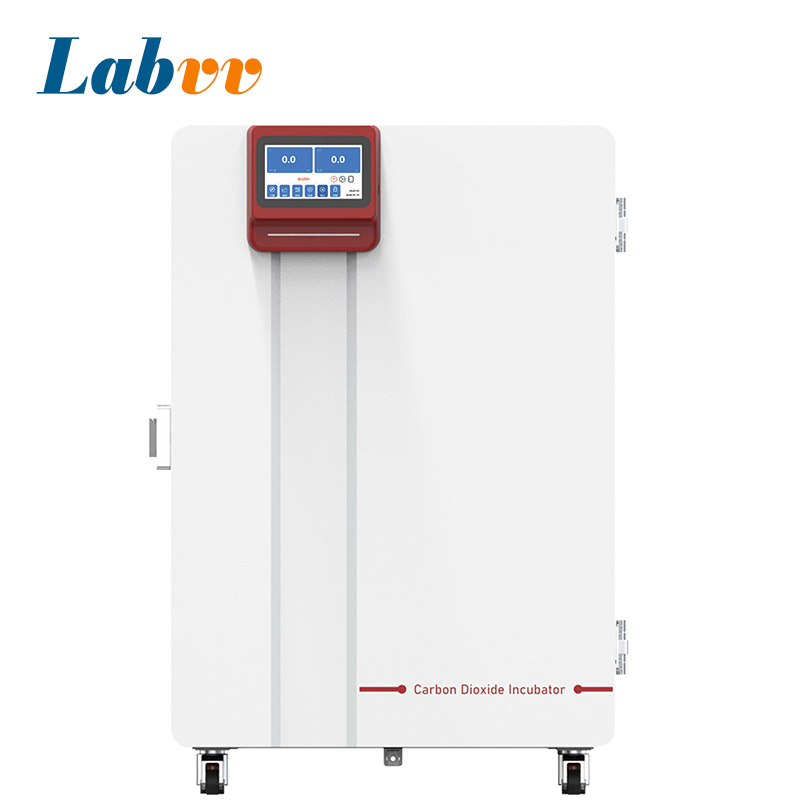CO2 Incubator for Cell Culture: Supporting Cellular Mechanism Research
A CO2 incubator for cell culture is a critical tool in modern laboratories, widely used in cell biology, biomedical research, genetics, immunology, oncology, drug development, and tissue engineering. By precisely simulating physiological conditions, it enables researchers to study cellular mechanisms under controlled and reproducible environments. From supporting cell growth to promoting experimental accuracy, CO2 incubators for cell culture are essential for advancing life science research.
Understanding the benefits of these incubators requires looking at how they replicate in vivo conditions and support a variety of research needs.
1. Simulating Physiological Conditions
The primary role of a CO2 incubator for cell culture is to replicate the natural environment of living cells. By controlling temperature (typically 37°C), CO₂ concentration (~5%), and humidity (~95% relative humidity), the incubator provides a stable environment that closely mimics in vivo conditions.
This foundation is crucial, as a consistent environment allows cells to maintain normal growth, metabolism, and function. Without such precise control, experimental results could be inconsistent or unreliable.
2. Promoting Cell Growth and Metabolism
With physiological conditions established, cells can efficiently utilize nutrients for energy metabolism and biosynthesis, promoting proliferation and viability.
Furthermore, the stable conditions offered by a CO2 incubator for cell culture reduce stress responses caused by environmental fluctuations. This not only helps maintain the physiological state of cells but also ensures that subsequent experiments are based on reliable, healthy cell populations.
3. Supporting Diverse Cell Research
Beyond basic growth, CO2 incubators for cell culture enable a wide range of cellular studies.
- Cell physiology studies: Researchers can adjust CO₂ levels, temperature, or humidity to observe cellular responses, including metabolism, signal transduction, and gene expression.
- Apoptosis and senescence studies: Cells can be induced to undergo programmed cell death or aging, allowing the study of morphological and biochemical changes.
- Stem cell and tissue engineering: The incubator provides a stable environment for stem cell maintenance and differentiation, supporting tissue regeneration, repair, and advanced biomedical applications.
In essence, these applications demonstrate that a CO2 incubator is not just for keeping cells alive—it is a versatile platform for exploring cellular behavior under controlled conditions.

4. Enhancing Experimental Reproducibility
Consistency is key in scientific research. A major advantage of a CO2 incubator for cell culture is its ability to provide uniform and controllable experimental conditions.
As a result, experiments become reproducible, data remain accurate, and findings are comparable across studies—qualities that are indispensable for credible scientific research.
5. Supporting Specialized Experimental Needs
Some advanced CO₂ incubators, such as tri-gas models, allow precise oxygen level control.
This additional capability enables researchers to simulate hypoxic or hyperoxic conditions, which are critical when studying tumor microenvironments, stem cell differentiation, or cellular metabolism under variable oxygen levels.
By expanding the experimental possibilities, these specialized incubators further increase the value of CO2 incubators for cell culture in cutting-edge research.
6. Preventing Contamination
Another important benefit is contamination control. Most CO₂ incubators feature HEPA filtration systems to remove airborne microbes and particulates, maintaining a sterile environment for cell culture.
Consequently, the risk of contamination is minimized, protecting experiments from failure and ensuring that data are reliable.
Conclusion
In summary, a CO2 incubator for cell culture provides a stable, controlled environment that is indispensable for studying cellular mechanisms. From simulating physiological conditions and promoting cell growth to supporting specialized experiments and ensuring reproducibility, it is a cornerstone of modern life sciences and biomedical research.
By integrating precise environmental control with versatility and contamination prevention, CO₂ incubators for cell culture continue to enable accurate and reliable experiments, advancing our understanding of cellular biology and accelerating scientific discoveries.
To further expand your knowledge, you may also find the following topics helpful:
Related Topics You May Be Interested In
- What Is a Clinical Diagnostics Laboratory System and How Does It Work?
- How to Choose a Clinical Diagnostics System for Your Laboratory
- Incubator Uses in Laboratory: Functions, Benefits, and Common Applications
- Laboratory Incubator vs CO₂ Incubator: What’s the Difference?
- Incubator in Laboratory: Definition, Types, and How It Works
- In-Depth Guide to CO₂ Incubators: Principles, Applications, and Smart Buying Tips
